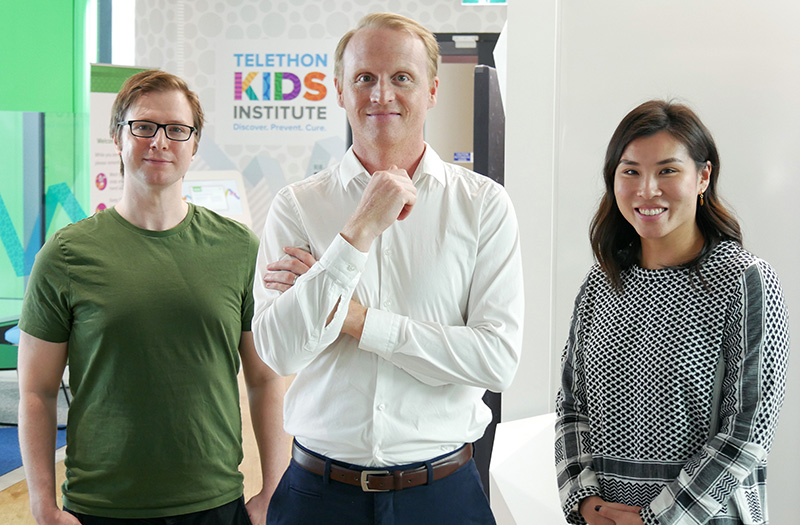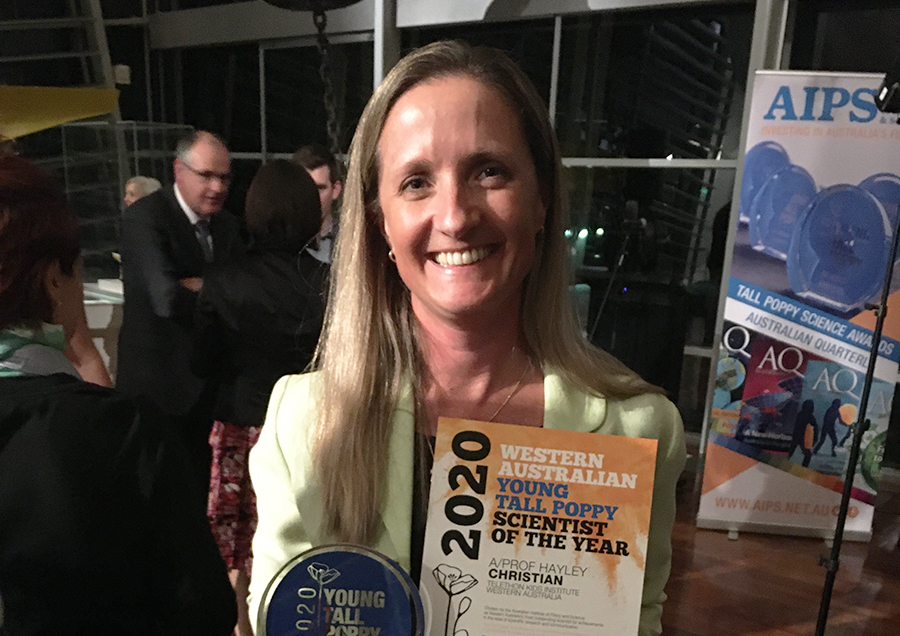Search

News & Events
Researchers discover two treatments that induce peanut allergy remission in childrenAn Australian research team – led by Murdoch Children’s Research Institute and including researchers from The Kids Research Institute Australia, Perth Children’s Hospital and The University of Western Australia – has discovered two peanut allergy treatments for children that are both highly effective at induc

News & Events
HEAL network to tackle health impacts of climate changeTeams from The Kids Research Institute Australia and The University of Western Australia will lead the WA arm of a transformational national research network grounded in Aboriginal and Torres Strait Islander knowledge

News & Events
Aboriginal health research leader first recruit in national strategic partnershipDr Alex Brown to take up a new appointment as Professor of Indigenous Genomics.

News & Events
WA health experts say junk food and sugary drink sponsorships have no place in sportWA’s peak public health and medical experts have united in their call to end the sponsorship of sport by junk food companies.

News & Events
The Kids Research Institute Australia researcher wins Forrest Prospect Fellowship to examine youth suicide clustersA youth mental health researcher aiming to map suicide hotspots and avert further suicides in WA has been awarded a prestigious fellowship from the Forrest Research Foundation.

News & Events
The Kids data expert joins life-changing Raine StudyCongratulations to Associate Professor Rebecca Glauert, Head of the Developmental Pathways and Social Policy Team at The Kids Research Institute Australia and an internationally recognised expert in data linkage.

News & Events
Alcohol industry lobbying puts babies at riskThe Kids Research Institute Australia researchers have urged Australia’s Food Safety Ministers to hold their nerve and resist alcohol industry efforts to water down health labels that will protect Australian babies from the lifelong effects of Fetal Alcohol Spectrum Disorder (FASD).

News & Events
Assessing COVID-19 Across Western Australian SchoolsWestern Australia has been highly successful at containing community spread of COVID-19 to date.

News & Events
$12 million grant puts WA research team in the hot seat to help wipe out malaria foreverA world-leading research team built to tackle malaria has relocated from Oxford University to Western Australia to take advantage of the state’s growing big data talent pool.

News & Events
The Kids researcher takes out top prize at 2020 WA Tall Poppy Science AwardsThe Kids Research Institute Australia and University of Western Australia physical activity researcher Hayley Christian has been named Young Tall Poppy Scientist of the Year at the 2020 WA Young Tall Poppy Science Awards.
